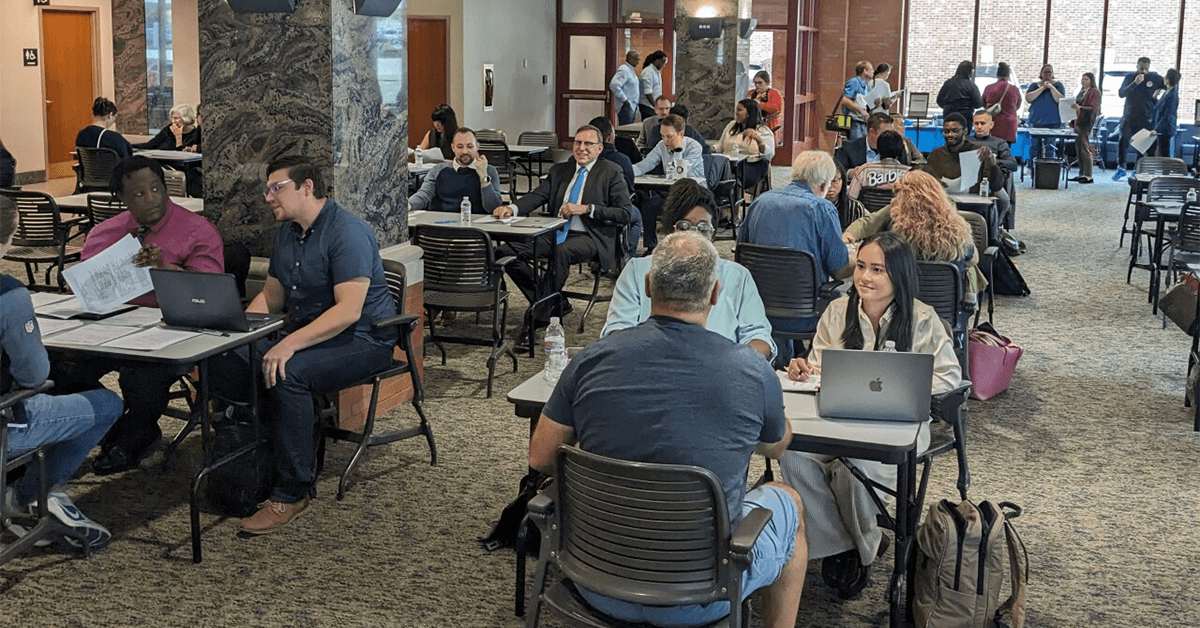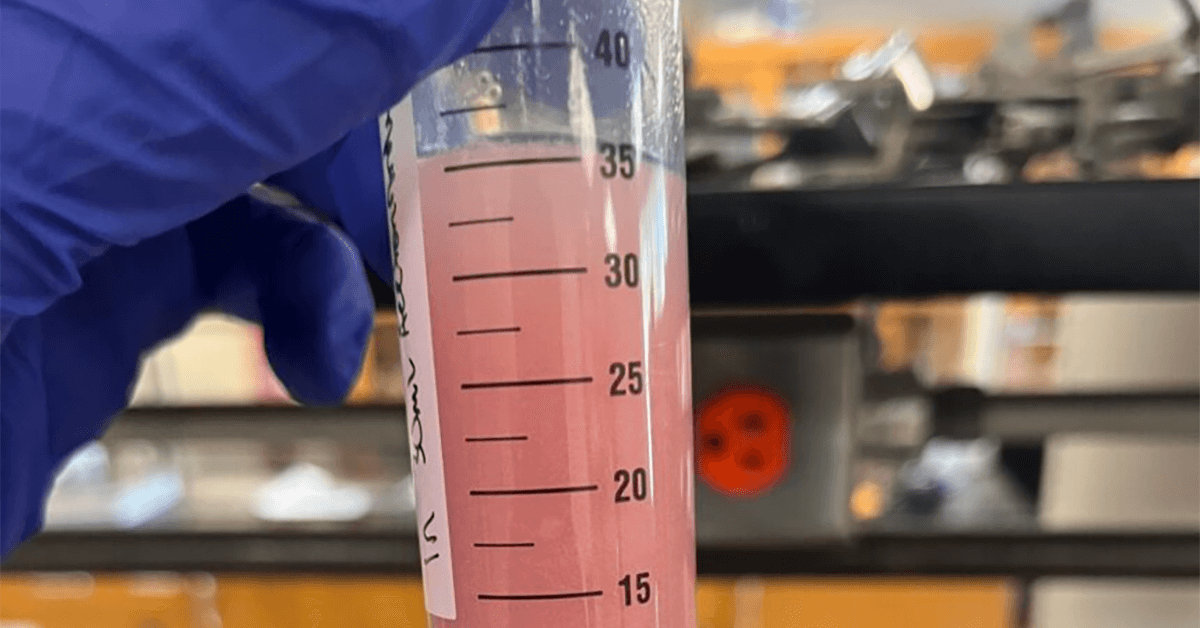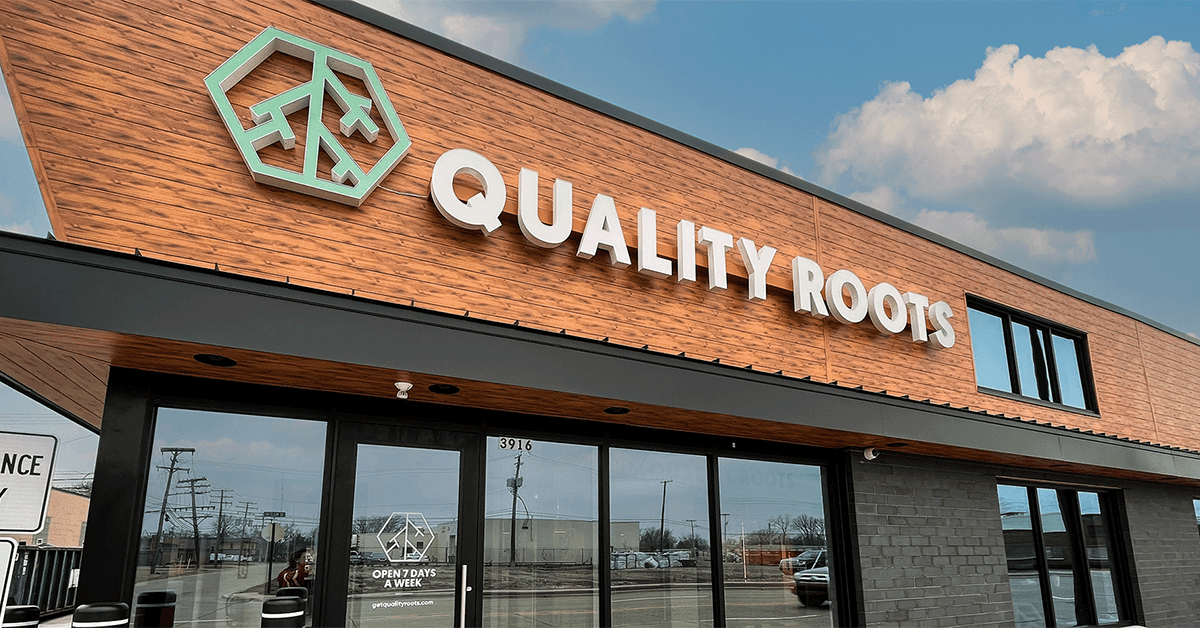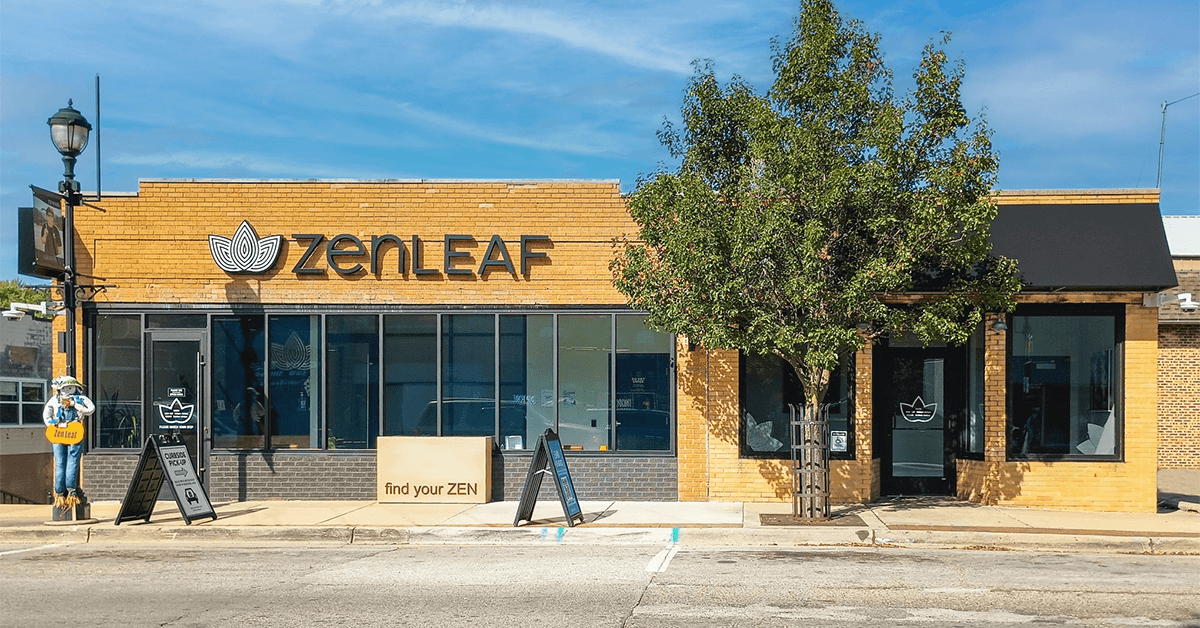Michigan Residents Get a Chance to Expunge Cannabis Violations

Individuals with certain traffic infractions and misdemeanor cannabis violations on their criminal records have an upcoming opportunity to potentially clear these charges, thanks to an expungement fair organized by Cooley Law School. Scheduled for Friday, March 22nd, from 12 to 4 p.m., the event will be hosted in the lobby area of the school, located in Lansing, Michigan.
The expungement fair is a result of a collaboration between Cooley Law School and several partners, including the Michigan Department of Attorney General, Safe & Just Michigan, and Legal Services of South Central Michigan. It aims to assist individuals in removing certain traffic offenses and, notably, misdemeanor convictions for cannabis-related violations that are no longer considered crimes following Michigan's decriminalization of recreational cannabis.
Eligible offenses for expungement include some traffic violations and first offenses for driving under the influence, alongside misdemeanor cannabis violations. This initiative reflects a broader move towards rectifying the legal consequences of past cannabis regulations, which have long-lasting impacts on individuals' lives, including hindering employment opportunities and social stigma.
Participants are encouraged to register for the expungement fair in advance online to ensure they can take advantage of this opportunity to clear their records and move forward without the burden of past convictions that are no longer in alignment with Michigan's current cannabis laws.
Police Issue Warnings as Cannabis Consumption Lounges Open in Michigan

With the burgeoning cannabis industry in Michigan, the advent of consumption lounges has introduced a new dynamic where patrons can legally consume cannabis products on the premises. This development prompts a vital message from law enforcement to motorists: prioritize safety and legality when driving. The illegal and perilous nature of driving under the influence of cannabis is underscored by police, who vow to diligently enforce laws against impaired driving.
Consumption lounges represent an emerging facet of Michigan's cannabis landscape, following the legalization of recreational cannabis use in 2018. These lounges are designated areas where individuals can purchase and consume cannabis in various forms, including smoking, edibles, and vaping, within a social and relaxed environment. This is in contrast to dispensaries, which only permit the purchase of cannabis products for off-site consumption.
The Michigan Marijuana Regulatory Agency notes the existence of three officially licensed consumption lounges within the state, located in Hazel Park, Kalamazoo, and Ann Arbor. With the cannabis industry's growth, more lounges are anticipated to open, fulfilling a demand for spaces where cannabis can be consumed legally and safely, especially for those unable to do so at home or in public places.
The introduction of consumption lounges, however, raises concerns for law enforcement officials who fear an uptick in cannabis-impaired driving incidents. Cannabis is known to affect reaction times, coordination, judgment, and perception, all critical faculties for safe driving. Additionally, the combined effects of cannabis with alcohol or prescription medications can significantly impair a driver's capabilities.
Law enforcement agencies emphasize the legal repercussions of driving under the influence of cannabis, which range from fines and license suspension to imprisonment and, in severe cases, death. Police are equipped with various methodologies, including field sobriety tests, drug recognition expertise, and blood analysis, to detect and apprehend impaired drivers.
The responsibility of using marijuana consumption lounges safely extends to both patrons and owners. Law enforcement advises patrons to arrange for safe transportation alternatives post-consumption, such as public transport, taxis, rideshares, or a designated sober driver. Education on the impacts and legalities of cannabis use is also encouraged. Lounge owners are urged to adhere strictly to legal and licensing obligations, monitoring the consumption within their premises to prevent impaired driving and providing essential information and resources to their customers on safe consumption practices and the consequences of impaired driving.
From Lab to Label: Uncovering the Real Content of CBD Products in Michigan

In an extensive study conducted in Michigan, Joey Spoelstra, a senior biochemistry student, undertook a comprehensive analysis of CBD products, revealing significant discrepancies between product label claims and their actual contents. Spoelstra, presenting his research findings to the Association of Analytical Chemists in Livonia, Michigan, on November 9th, emphasized the core objective of his study was to evaluate the accuracy of label claims on CBD products through rigorous scientific analysis. The results indicated a widespread issue with the accuracy of these claims, highlighting a concerning trend in the CBD market.
Under the guidance of Mark Nussbaum, a professor of chemistry and Spoelstra's research mentor, various analytical techniques were employed to assess the composition of the CBD products. A key part of the investigation involved using gas chromatography, a process during which Spoelstra observed that CBD degraded into THC when subjected to elevated temperatures. This degradation process is critical as THC, unlike CBD, possesses psychoactive properties, raising potential health concerns.
To further his analysis, Spoelstra applied liquid chromatography, a method lauded by Nussbaum for its ability to separate and analyze compounds without the necessity of heating the samples. This technique proved effective in identifying several compounds related to CBD. Additionally, Spoelstra's research ventured into how CBD behaves under simulated gastric conditions, revealing that CBD does not dissolve as effectively in stomach acid as product labels might suggest.
An unconventional aspect of Spoelstra's study involved incorporating CBD into brownies to observe the effects of baking on CBD's stability. This experiment faced a setback when a sample was destroyed due to excessively high temperatures, demonstrating the challenges of maintaining CBD's integrity under various conditions.
As Spoelstra progressed through his research, he gained significant independence in operating analytical instruments, building on prior CBD studies, including those conducted by Marie Taylor '23. The rigorous nature of the research, as echoed by Dana Gramckow, a senior chemistry student involved in a separate project, entailed six weeks of dedicated work, spanning from morning till late afternoon each day.
A critical standpoint emerging from Spoelstra's research is the advocacy for stricter regulatory oversight by the FDA over CBD products. The current lack of accurate labeling and quality control poses significant safety concerns, a sentiment supported by both Spoelstra and Nussbaum. They criticize the FDA's handling of hemp-related compounds, which fall into regulatory grey areas, neither classified as pharmaceuticals nor food supplements, leading to loopholes that companies exploit to avoid stringent testing and purity verification.
Nussbaum also pointed out the issue of false advertising surrounding CBD's purported benefits, underscoring the need for greater regulatory scrutiny to ensure product purity and accurate representation. This study, conducted in the heart of Michigan, casts a spotlight on the urgent need for improved regulation and oversight in the CBD industry, ensuring consumer safety and product integrity.
Quality Roots Expands Michigan Presence with New Madison Heights Dispensary

Quality Roots, a cannabis operator based in Birmingham, Michigan, is on the verge of launching its eighth store within the state while simultaneously making strides into New Jersey, reflecting a strategic transition towards operating as a management service organization.
The company is set to unveil its Madison Heights dispensary by the end of this month, establishing its third outlet in Oakland County. Situated at the intersection of John R Road and East 14 Mile Road, this new retail location represents a significant investment of around $6 million by Quality Roots, according to Aric Klar, the CEO of this family-operated business.
This expansion is not just about increasing the company's footprint; it also involves a commitment to the community. As part of a community benefits agreement with Madison Heights, Quality Roots has pledged $200,000 towards the renewal of the city's "Welcome to Madison Heights" signs. This contribution aligns with the requirements of state law, which mandates that local cannabis license allocations consider community benefits as a crucial factor in their competitive selection process.
Furthering its integration into the Madison Heights area, Quality Roots plans to introduce a small-scale processing and cultivation facility on the site, mirroring the operational model of its Battle Creek location, Klar noted. This move not only enhances the company's production capabilities but also strengthens its bond with the local community by contributing to economic development and beautification projects.
Five Students Suspended Over Marijuana-Laced Brownies at Bangor Middle School

Five students at Bangor Middle School have been temporarily removed from school following an incident involving brownies infused with cannabis that were distributed and consumed within the school's cafeteria. Superintendent Lynn Johnson of Bangor School District disclosed these details, highlighting a troubling lapse in safety and oversight within the educational environment.
According to Johnson's account, the series of events unfolded when one pupil admitted to bringing the adulterated brownies to the school and sharing them with four peers. Among these, two students acknowledged knowing about the presence of cannabis in the brownies, while the other two were unaware they were consuming a substance-laced treat.
The school district has decided to suspend all five students involved for a period of 10 days. However, this duration might be adjusted for the two students who were uninformed about the nature of the brownies they consumed, depending on the findings of the ongoing investigation by the district. The severity of this action underscores the seriousness with which the district is treating the matter, aiming to ensure such incidents are not repeated.
Further complicating the situation, the student responsible for introducing the marijuana-laced brownies to the school could face legal repercussions, specifically a minor in possession charge. This is contingent upon the investigation's outcomes and illustrates the legal boundaries crossed in this incident.
The incident came to light after one of the unsuspecting students disclosed the experience to a parent, who then promptly reported it to the school authorities. This act of responsible communication was crucial in enabling the school to address the situation swiftly.
This episode serves as a poignant reminder of the challenges schools face in maintaining a safe and drug-free environment for students. It also highlights the importance of open communication between students, parents, and school officials in safeguarding the well-being of the school community.
Zen Leaf Buchanan Employees Vote for Union Representation, Aiming for Better Work Conditions

Employees at the Zen Leaf cannabis retail facility in Buchanan have chosen to join the United Food and Commercial Workers Local 951, marking a significant step in labor organization within the industry. The vote, which took place on March 1st, showcases a strong desire among workers for better representation and workplace protections. UFCW 951 President John Cakmakci expressed enthusiasm over the workers' decision, emphasizing the union's commitment to securing a contract that ensures competitive wages, quality healthcare, and workplace guarantees and protections for the Zen Leaf Buchanan team.
This move by the Zen Leaf Buchanan staff highlights a growing trend towards unionization in the cannabis sector, an industry often criticized for high employee turnover. A resounding 85 percent of employees at the facility expressed their support for joining the union, with plans to commence bargaining for their first contract soon. Justin McMeans, a staff member at Zen Leaf Buchanan, voiced his frustrations over exploitative work conditions and called for budtenders across Buchanan and Michigan to advocate for fairer treatment and consider unionization.
Zen Leaf, with dispensaries across 12 states and its only Michigan outlet in Buchanan, opened its doors in 2019, becoming both the city's inaugural dispensary and the first to unionize. Kelsey Rems, another employee at the Buchanan location, shared her pride in their collective action towards improving working conditions. The Buchanan team joins a growing number of cannabis workers in the U.S. and Canada who have aligned with UFCW locals, supported by the UFCW International's Cannabis Workers Rising campaign. Recent years have seen similar unionization efforts at other Zen Leaf locations, including a Connecticut dispensary that ratified the state's first union contract in February. Negotiations for the Zen Leaf Buchanan employees' contract are expected to begin soon, setting a precedent for labor rights within the cannabis industry.
Related: Ascend Cannabis Store Employees in Michigan Approve Teamsters Union Contract


 Helpful Links
Helpful Links